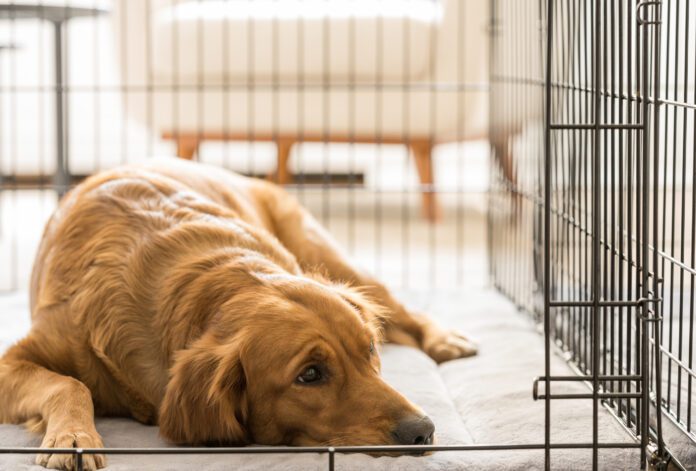A crate is not a place of punishment. Never force your dog or puppy into a crate in anger. Even if he has earned a time-out through inappropriate behavior, don’t yell at him, throw him in the crate, and slam the door. Instead, quietly remove the dog from the scene and invite him into his crate to give both of you an opportunity to calm down.
Nor is a crate appropriate for long-term confinement. While some puppies are able to make it through an eight-hour stretch in a crate at night, you should be sleeping nearby and available to take your pup out if he tells you he needs to go.
During the day, a puppy should not be asked to stay in a crate longer than two to four hours at a time; an adult dog no more than six to eight hours. Longer than that and you risk forcing Buddy to eliminate in his crate, which is a very bad thing, since it breaks down his instinctive inhibitions against soiling his den. Dogs who learn to soil their dens can be extremely difficult, sometimes nearly impossible, to house train – a common behavior problem for puppies from unclean puppy mills.
To find out how to help your dog find contentment in the close quarters of a crate, download Crate Training Made Easy now.






